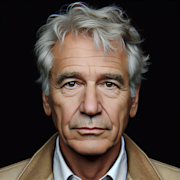The Grand Illusion (1937)

Released in 1937, The Grand Illusion is a classic French film directed by Jean Renoir that has left an indelible mark on cinematic history. In this post, we will dive deep into the themes, characters, and impact of this timeless masterpiece.
The Plot
The film is set during World War I and follows the story of two French soldiers, Lieutenant Maréchal and Captain de Boeldieu, who are captured by the Germans and sent to a prisoner-of-war camp. The central theme of the film revolves around the illusions of class, nationality, and war itself.
As the two officers navigate their captivity, they form unlikely bonds with their fellow prisoners, including the aristocratic German officer, Captain von Rauffenstein. Through their interactions, the film explores the futility of war and the common humanity that transcends national boundaries.
The Characters
Lieutenant Maréchal: Played by Jean Gabin, Maréchal is a working-class man who represents the common soldier. His resilience and resourcefulness stand in contrast to the aristocratic backgrounds of his fellow prisoners.
Captain de Boeldieu: As the embodiment of the French bourgeoisie, de Boeldieu, played by Pierre Fresnay, initially struggles to connect with Maréchal but eventually finds common ground with him. His character highlights the complexities of class dynamics during wartime.
Captain von Rauffenstein: Erich von Stroheim delivers a memorable performance as the honorable yet conflicted German officer who forms a bond with de Boeldieu. His character underscores the humanity that persists even in the midst of war.
Themes
Class Divide: The Grand Illusion critiques the entrenched class divisions that pervade society, even during times of conflict. Through the interactions of Maréchal, de Boeldieu, and von Rauffenstein, the film challenges the notion of social hierarchy.
War as Illusion: The film questions the romanticized notions of war by exposing its brutal realities and human costs. Renoir portrays war as a senseless endeavor that ultimately leads to destruction and suffering.
Humanity and Compassion: Despite the backdrop of war, The Grand Illusion emphasizes the common humanity shared by individuals of different nationalities. The characters’ acts of kindness and camaraderie highlight the universal desire for connection and understanding.
Impact
The Grand Illusion received critical acclaim upon its release and has since been hailed as one of the greatest films ever made. Its nuanced storytelling, compelling characters, and powerful themes have solidified its place in cinematic history.
The film’s exploration of class, nationality, and the human experience continues to resonate with audiences today, making it a timeless classic that remains relevant in our contemporary world. The Grand Illusion serves as a poignant reminder of the illusions that shape our perceptions and the enduring bonds that unite us all.
In conclusion, The Grand Illusion stands as a testament to the power of cinema to provoke thought, evoke emotion, and challenge our perspectives. Its enduring relevance and universal themes ensure that it will remain a staple of film studies for generations to come.

Desmond van der Walt
Journalist
More From Classics Authority Movies

Movie
Birdman or (The Unexpected Virtue of Ignorance) (2014)

Movie
Rear Window (1954)

Movie
Duck Soup (1933)

Movie
Classic Hollywood Trailblazers: Empowering Women in Cinema

Movie
Film Noir's Shadowy Aesthetics: The Art of Visual Storytelling

Movie
Hollywood Stardom: The Rise and Fall of Iconic Classic Film Stars





